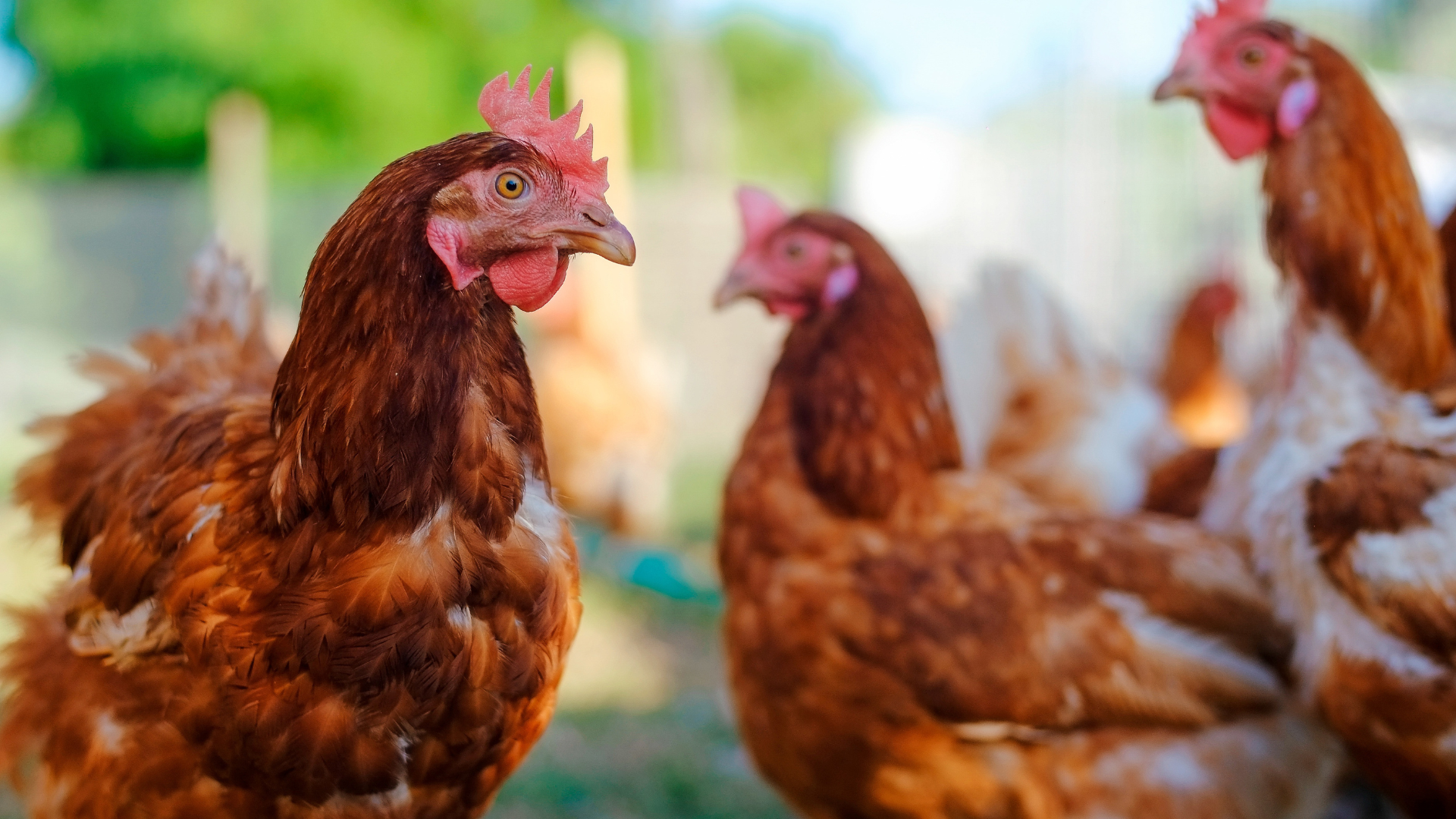
What is Avian Influenza (AI)?
Avian Influenza, also known as Bird Flu or Avian Flu, is a variation of the influenza virus that affects birds and is highly contagious. The UK is under constant threat from bird flu because of wild birds.
There are two main types of AI; Highly pathogenic avian influenza (HPAI) and Low pathogenic avian influenza (LPAI), with the former being the most serious. In rare cases, AI can also affect humans, which happened in the case of one of the most notorious strains – H5N1.
AI is a notifiable disease that MUST be reported to DEFRA
How Does Avian Influenza Spread?
AI is NOT an airborne virus, it spreads through:
- Direct contact from bird to bird
- Contaminated body fluids and faeces
- Feed and water
- Dirty vehicles, clothing and footwear
Avian influenza changes frequently, creating new variants/strains, and posing a constant risk of a new strain spreading more easily.
Signs of Avian Influenza
Highly Pathogenic Avian Influenza (HPAI)
There are many signs and symptoms that may indicate HPAI. Some of the more common to watch out for are:
- A sudden and rapid increase in the number of birds found dead
- Several birds affected in the same shed or air space
- Swollen head
- Closed and excessively watery eyes
- Lethargy and depression
- Recumbency and unresponsiveness
- Incoordination and loss of balance
- Head and body tremoring
Low Pathogenic Avian Influenza (LPAI)
Low pathogenic avian influenza (LPAI) is usually less severe and may show more vague signs. Some of the more common signs are;
- Mild breathing problems
- Reduction of egg production
- However, some birds will not show clear signs of infection
- The severity of LPAI depends on the type of bird and any other illnesses/diseases they may have
DEFRA & Avian Influenza
The Department for Environment, Food & Rural Affairs (DEFRA) is responsible for environmental protection, food production/standards, agriculture, fisheries and rural communities in the UK. It is a requirement by law to report any notifiable disease to DEFRA, of which AI is one.
Once reported, DEFRA will provide guidelines and checklists to help control the further spread of the disease. DEFRA will commonly implement an Avian Influenza Prevention Zone (AIPZ) where all bird keepers are required by law to follow a range of biosecurity precautions, such as using an approved disinfectant.
2022 Outbreak
Previous to 2022, outbreaks had been predominantly on domestic poultry farms, with few cases of the virus detected in wild birds. This changed in 2022, with a number of unprecedented outbreaks, the largest ever in the UK. There were positive cases at over 350 locations, and in over 60 species in 2022 alone and in January 2022 more than 4,000 barnacle geese died on the Solway Firth in Scotland. Unfortunately, this type of event continued further into the year, highlighting the importance of preventative action.
Biosecurity
High standards of biosecurity should always be maintained as good practice for the health of birds. Biosecurity is also an essential defence and is key to limiting the spread of notifiable diseases
How do you implement an Avian Flu-appropriate biosecurity regime?
- You MUST use a DEFRA-approved disinfectant
- Use foot baths at entry and exit of all enclosures
- Clean any new vehicles and shared vehicles
Although Avian Flu is spread most commonly from bird to bird, humans, clothing & vehicles can still carry the virus.
Other measures
- Clean footwear before and after visiting your birds
- Keep areas clean and tidy
- Humane pest control regime
- Fencing – suitable fencing keeps your birds separate from wildlife and waterfowl
- Place food and water in fully enclosed areas
- Remove spilled feed regularly
What else is being done?
AI is a problem that isn’t going away anytime soon. The government has committed to an increase in funding to help with the surveillance and testing of the virus by the Animal and Plant Health Agency (APHA).
The APHA hosts both the World Organisation for Animal Health (WOAH) and Food and Agricultural Organisation (FAO) International reference laboratory (IRL), and the UK National reference laboratory (NRL) for Avian Influenza (AI).
This international collective effort, alongside an additional £1.5 million in funding for new strategies should help tackle future bird flu outbreaks.
———————————————————————————————————-
This guide was compiled by Safe4, The Professional Solution. Safe4 has been protecting professionals, those in their care and the environment for more than 20 years – https://safe4disinfectant.com
Safe4 concentrate disinfectant is DEFRA approved. Click here to find out more about the range or order from NVS.
———————————————————————————————————-
Useful Links:
How to protect your birds from the risk of bird flu – https://assets.publishing.service.gov.uk/government/uploads/system/uploads/attachment_data/file/1098354/birdflu-protect-birds-leaflet.pdf
How to register your birds – https://www.gov.uk/guidance/poultry-registration
Vaccination guidance – https://www.gov.uk/government/publications/avian-influenza-bird-flu-vaccination
Images of clinical signs of avian flu – https://www.flickr.com/photos/defragovuk/sets/72157694543861305
Wild bird guidance – https://www.gov.uk/guidance/avian-influenza-bird-flu#wildbirds
